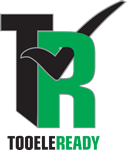What To Do After a Car Crash
Take some deep breaths try to get calm and understand the situation.
But take a few deep breaths or count to 10 to calm down. The calmer you are, the better prepared you will be to handle the situation. This is the time to take stock of the accident and try to make a judgment about whether it was a serious one.
Check for Injuries and Report the Incident
Check on everyone in your vehicle. Some injuries may not be seen. Be extremely cautious about any potential injury. Call 911 and report the incident. Some of the questions the Dispatcher may need to know.
- Who? The dispatcher will ask for your name and phone numbers in case the authorities need to get more information from you later.
- What? Tell the dispatcher as much as you can about the emergency — for instance, whether there is a fire, traffic hazard, medical emergency, injuries, etc.
- Where? Let the dispatcher know exactly where the emergency is taking place. Give the city, road name, road number, mile markings, direction of travel, traffic signs, and anything else you can think of to help them know how to find you.
Make sure you stay on the line until the dispatcher says it’s OK to hang up.
It is in your favor to obtain the police report from the collision. It will ultimately help your insurance provider process your accident claim. If you call a lawyer for any reason following a car crash, you will likely need it then as well. Be sure to cooperate fully with the responding officer and answer questions as honestly as possible. If no one was harmed in the crash, the police may not report to the scene of the crash. In this case, you should file the accident report through the local DMV.
Get the Other Driver’s Information
Ask to see the driver’s license of the other drivers involved in the crash so that you write down their correct information such as:
- Name of the driver and any involved occupants.
- License plate numbers of all involved cars.
- Insurance information of the other driver.
- Vehicle make, model, and year.
- Location of the crash; and
- Name and badge number of responding police officials.
Also, it will be beneficial to gather contact information from any witnesses at the site who may have stopped and are willing to offer testimony on what took place.
If the other driver doesn’t own the vehicle involved, be sure to get the owner’s info as well.
Take Pictures and take notes about the crash
If the crash is minor and you feel that you can describe it, try to take pictures and put the details in writing. Take your time to ensure that the images are clear. Detailed notes and photos of the scene may help the court and insurance agencies decide who is responsible. Get a good description of the vehicles involved — year, make, model, and color. Take photos of the scene — including the vehicles and any damage, the roads, any traffic signs, and the direction each vehicle was coming from.
You may want to try to draw a diagram of the exact crash site and mark where each car was, what direction the car was coming from, and what lane it was in. Write down the date, time, and weather conditions. If there were any witnesses, try to get their names and contact info so that they can help clear up matters if one of the other drivers isn’t completely honest about what really happened. You can only do these things if you think the collision was minor (for instance, if the airbag did not inflate). If the crash is major, you want to involve the police.
Never Accept Blame or Liability
Even if you think a crash was your fault, it might not be. That’s why insurance companies say that you should not admit fault or accept blame at the scene. Do not provide any more information than is necessary but try to be polite and helpful. Only talk about the incident with the police, medical professionals, the insurance adjuster, or any other professional involved in the accident.
File an Insurance Claim
As soon as you are able to, after talking to the police and getting all the contact information, you should then contact your insurance provider to file an accident claim. Stay vigilant and keep on top of the process and follow up with whatever information is needed by the insurance adjuster. You will likely receive a damage valuation of your car. If you disagree with the amount that the insurance adjuster valued your vehicle or the sustained damage, you should seek independent estimates on your own. Two should be sufficient for your claim, and you can offer this information to your adjuster.
Track Your Medical Treatments and Expenses
If you were harmed in the car crash, you should track everything very closely. Maintain journals of your injuries, the doctors you have visited, and what treatments have been done. This includes keeping copies of your medical expenses. Track of the days you have missed from school or work due to your injuries, as well as your feelings following the accident. If you end up going to trial, it can often be hard to demonstrate “pain and suffering.” While you are recovering from your injuries, keep a journal, take notes, or use a mood tracking app to document your feelings daily.
You might consider consulting with a Personal Injury Lawyer
You may decide on calling a car crash lawyer immediately after the crash, or maybe you will wait until you hear back from your insurance provider. Whatever the reason or whenever you make the call, share all the information you have — the police report, information from your insurance carrier, and your documented medical expenses. From this point, you and your lawyer can decide on how to move forward.
The Aftermath
While the crash itself might be upsetting, dealing with the aftermath can be too. In the hours or days following a collision, some people may still be shaken up. Some may be beating themselves up over what happened — especially if they feel the crash was avoidable. Sometimes, people close to those who were involved (like families and best friends) can experience some emotional problems too. These feelings are all normal. Once some time passes, the car is repaired, and the insurance companies are dealt with, most car crashes become mere afterthoughts.
In some cases, though, these feelings can get stronger or last for longer periods of time, keeping a person from living a normal life. Posttraumatic stress disorder (PTSD) can occur after a devastating event that injured or threatened to injure someone. Signs of PTSD may show up immediately following the crash, or weeks or even months after.
Not everyone who experiences stress after a trauma has PTSD. But here are some symptoms to look out for:
- avoiding emotions or any reminders of the incident
- constant feelings of anxiousness, crankiness, or anger
- avoiding medical tests or procedures
- constantly reliving the incident in one’s mind
- nightmares or trouble sleeping
If you notice any of these symptoms after you’ve been in a car crash, try talking through the experience with friends or relatives you trust. Discuss what happened, and what you thought, felt, and did during the collision and in the days after. Try to get back into your everyday activities, even if they make you uneasy. If these things don’t help, ask for help from a doctor or a professional.
There are no shortcuts in the healing process. After you’ve suffered an injury in a car crash, full recovery takes time and care. Some injuries take weeks or even months to heal completely, depending on the severity of the injury, pre-existing health conditions and how compliant you are with treatment.

